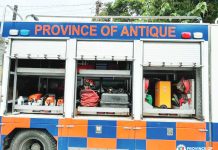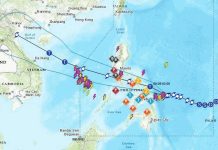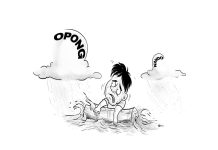
EVERY September, the International Coastal Cleanup (ICC) transforms our shores into sites of solidarity. In Iloilo City, hundreds gathered on Sept. 20 in Barangay Sto. Niño Sur, Arevalo district filling sacks with plastics, bottles, and other debris. Meanwhile, from Boracay Island in Aklan to Malandog in Antique, volunteers showed once more that Western Visayas is not lacking in civic spirit.
Yet beneath the photos of smiling volunteers and cleared coastlines is a sobering truth: one-day cleanups, no matter how massive, will remain symbolic unless they spark real and lasting reforms. Without systemic solutions, the trash will return, carried by rivers, esteros, and careless human hands.
Take Iloilo Province as an example. Data from the Provincial Environment and Natural Resources Office shows some decline in collected waste volumes compared to previous years, an encouraging sign. But anyone walking along creeks or rural barangay roadsides can see that litter is still a persistent problem. Plastics are still the dominant culprit, and much of it comes from single-use packaging — sachets, cups, and food containers that are convenient in the moment but disastrous for our seas.
The problem is not just disposal. It is also production and enforcement. Local government ordinances against illegal dumping often lack teeth, with violators rarely penalized. Barangay collection systems remain inconsistent. At the same time, businesses are still encouraged — or at least not discouraged — to flood markets with single-use plastics.
If Iloilo and the wider Western Visayas are serious about clean seas, then ICC must go beyond annual rituals. It must push policymakers to act. That means:
* Stricter enforcement of waste management laws, with real penalties for illegal dumping in rivers and coastlines.
* Incentives for businesses to shift to reusable or biodegradable packaging, supported by local government partnerships.
* Investment in circular economy practices that turn waste into usable resources, from community-level composting to large-scale recycling hubs.
* Integration of cleanup data into legislation, so the yearly waste audits are not just statistics but tools for crafting effective policies.
The volunteers who picked up trash on Sept. 20 did their part. But it is unfair to expect them to keep undoing, year after year, the damage caused by weak systems and unregulated consumption. The responsibility now lies with our leaders — in city and municipal halls, provincial capitols, and Congress — to turn this citizen-led momentum into policies that attack the problem at its roots. Otherwise, ICC risks becoming a mere spectacle: one day of clean shores followed by 364 days of business as usual.
Cleanups inspire; policies transform. Western Visayas must not settle for the former without demanding the latter.







